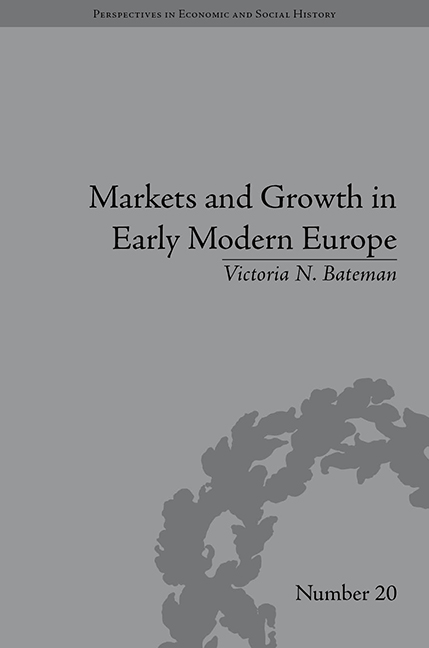Book contents
- Frontmatter
- CONTENTS
- List of Figures and Tables
- Acknowledgements
- Preface
- Introduction
- 1 Markets in History: A Survey
- 2 The Course of Early Modern Market Integration: Country-Level Results
- 3 The Course of Early Modern Market Integration: The Mediterranean and the North-West Region
- 4 Early Modern Market Integration in a Longer Run Perspective
- 5 The Causes of Early Modern Market Integration and Disintegration
- 6 The Consequences of Early Modern Markets: An Examination of the Relationship between Markets and Economic Growth
- 7 Conclusions and Implications for Economic Policy and the Modern Day
- Notes
- Works Cited
- Index
7 - Conclusions and Implications for Economic Policy and the Modern Day
- Frontmatter
- CONTENTS
- List of Figures and Tables
- Acknowledgements
- Preface
- Introduction
- 1 Markets in History: A Survey
- 2 The Course of Early Modern Market Integration: Country-Level Results
- 3 The Course of Early Modern Market Integration: The Mediterranean and the North-West Region
- 4 Early Modern Market Integration in a Longer Run Perspective
- 5 The Causes of Early Modern Market Integration and Disintegration
- 6 The Consequences of Early Modern Markets: An Examination of the Relationship between Markets and Economic Growth
- 7 Conclusions and Implications for Economic Policy and the Modern Day
- Notes
- Works Cited
- Index
Summary
For much of human existence, life has involved a constant daily battle to find the means for subsistence. Not so long ago, every day consisted of constant short-term worries: Where was the next meal coming from? Would the roof withstand the winter rains? Would your children survive the latest onset of illness? By acting alone, it is difficult to mitigate the risks and achieve anything other than bare bones subsistence. Few of us have the skills or abilities required to be great hunters, builders, soldiers and doctors all in one. It is for this reason that Adam Smith argued that markets would naturally arise. Individuals will barter with each other as a means to get access to the goods and services that they find difficult to produce for themselves. Over time, money replaces payment in kind, and a full-scale market economy develops.
However, markets are not the only arrangement that societies have practiced; cooperation, gift exchange and coercion have all existed in the course of European history in one form or another. Acting cooperatively involves working together and dividing tasks between one another to build shelter, grow food, hunt and provide defence. In European history this includes aspects of the open-field village system and, in theory at least, the Soviet Union under communism. Of course, getting people to act for the common good is not always easy, particularly if the size of the population in question makes monitoring difficult.
- Type
- Chapter
- Information
- Markets and Growth in Early Modern Europe , pp. 167 - 182Publisher: Pickering & ChattoFirst published in: 2014

